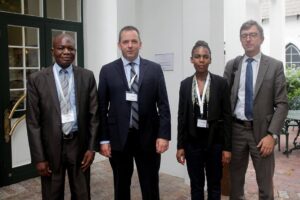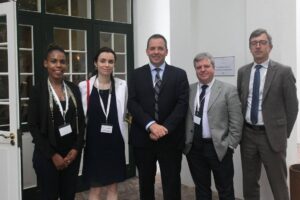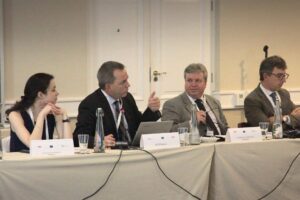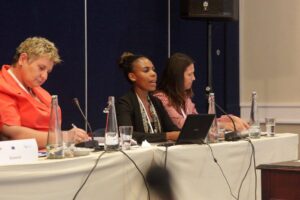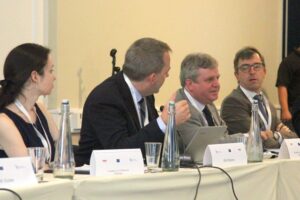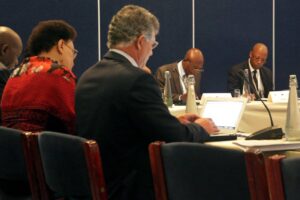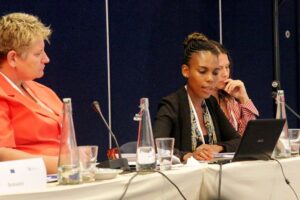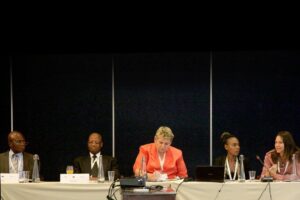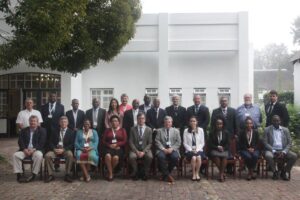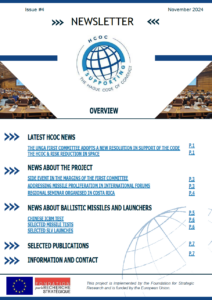Expert mission on HCoC to South Africa
11 April 2016
On 11 April 2016, the FRS conducted, in partnership with the Pretoria-based Institute for Security Studies, a mission in South Africa to promote the HCoC.
AGENDA
WELCOMING REMARKS
- Christophe LAROSE, Representing the EU Delegation to the Republic of South Africa
- Xavier PASCO, Senior Research Fellow, Foundation for Strategic Research, France
- Nicolas KASPRZYK, International Consultant, Institute for Security Studies, South Africa
I/ THE HCoC AGAINST THE PROLIFERATION OF BALLISTIC MISSILES: UNIVERSALITY, IMPLEMENTATION & VISIBILITY
SPEAKERS:
- Emmanuelle MAITRE, Research Fellow, Foundation for Strategic Research, France
- Gloria BAMUSI, Assistant Director of Political Affairs, Head of Disarmament Affairs, Ministry of Foreign Affairs, Malawi
- Michiel COMBRINK, Deputy Director, Disarmament & Non-Proliferation, DIRCO, Republic of South Africa
TOPICS FOR DISCUSSION:
- Presentation by current HCoC Chair of progress and challenges relating to universality, implementation, and visibility
- The role of the Code and other TCBMs in regional dynamics and the regional security environment : the view of an African signatory country
- The concrete meaning of implementing the HCoC, as perceived by a signatory state
II/ CURRENT TRENDS CONCERNING BALLISTIC MISSILE TECHNOLOGIES & PROLIFERATION: GENERAL & REGIONAL VIEWS
SPEAKERS:
- Dr. Jo-Ansie VAN WYK, University of University of South Africa (Unisa), Pretoria
- Dr. Joelien PRETORIUS, University of the Western Cape
- Mothepa SHADUNG, research fellow, ISS
TOPICS FOR DISCUSSION:
- Issues arising from dual-use technologies and related strategies
- Regional analysis on the issues of proliferation and Africa
- Comparative perspectives between the implementation and challenges of the 1540 Resolution and the HCoC Initiative
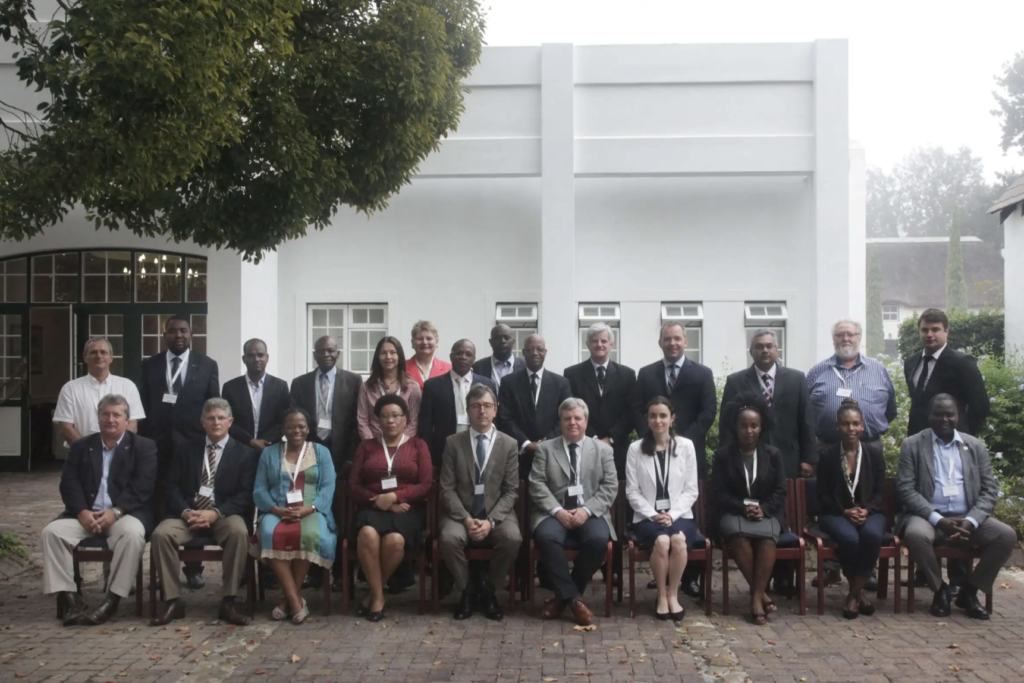
III/ CURRENT TRENDS CONCERNING SPACE LAUNCG TECHNOLOGIES & CAPABILITIES: DYNAMICS OF SPACE LAUNCH & FUTURE USES OF SPACE APPLICATIONS
SPEAKERS:
- Dr. Xavier PASCO, Senior Research Fellow, Foundation for Strategic Research, Paris
- Dr. Spencer ONUH, Director of the Nigerian Space Agency
- Dr. Christiaan REDELINGHUYS, DeltaV Aerospace
TOPICS FOR DISCUSSION:
- The characteristics of the development of space launch technologies
- The evolution of the satellite industry and its impact upon the space launch sector.
KEYNOTE SPEAKERS:
- Priscilla JOHNSON
- Louis HANNIE, Denel
- Presentation of the Overberg Test Range
CONCLUDING REMARKS
- Nicolas KASPRZYK, International Consultant, Institute for Security Studies, South Africa
- Xavier PASCO, Senior Research Fellow, Foundation for Strategic Research, France
